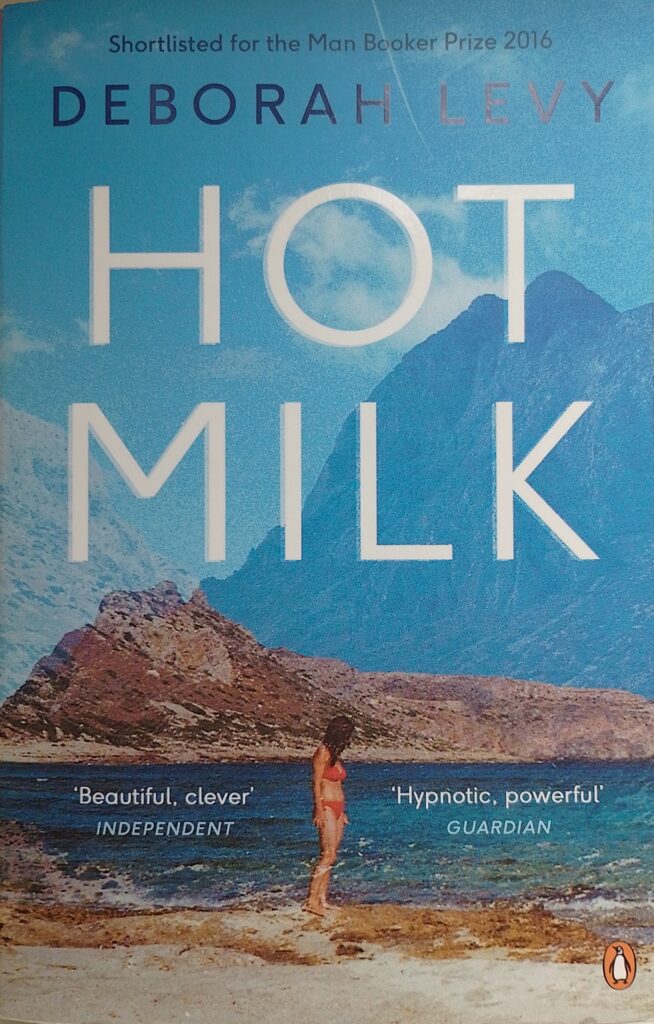First published 2016. Penguin paperback, 2017, pp 218, c.95,000 words.
Everything in this novel is ambiguous: we are never sure what is real and what is only desired or feared. Ostensibly it is a simple story, told from the point of view of a young woman, Sophia Papastergiadis. She and her mother have come from Britain to southern Spain to attempt to find a cure to her mother’s ailments. Sophia has given up her anthropology research to become her mother’s carer.
Where we are really is inside Sophia’s head. We experience the chaos of her thoughts, see what she sees, hear what she hears, feels what she feels; reality is jumbled up with memory, fear, and desire. It’s funny and sad, hopeless and hopeful. Sometimes Sophia sees what she wants to see. It is hard to decern what is real and what she thinks might be real, or would like to be real. Is the patient her mother or herself? Is she projecting her own uncertainty on to others? Is the doctor they are seeing a quack, or is he seriously trying to help and is being confused by these ambiguous people? Sophia is not an unreliable narrator in the sense of deliberately leading us astray.
One of her lovers is first seen when Sophia is in the women’s toilet in a restaurant. She sees a pair of men’s shoes under the stall wall and panics. It turns out that the shoes are worn by Ingrid Bauer, an athletic German woman who remakes old clothes for a living.
David Bowie’s song Space Oddity echoes: ‘…you’re off your course, your direction’s wrong… … floating in the most peculiar way [p129]…’ The stars are a recurrent theme: as screen saver on a broken laptop, and in the clear night sky.
Everything is symbolic: the arid landscape of Andalusia where the clinic is located; the sea is warm and inviting but contains stinging jellyfish; everywhere there are breast shapes (echoed on the cover of my edition in the landscape and bikini clad woman floating half in the scene and half out of it); there is a dog owned by a man called Pablo that is tied up and barks all day, but if it is released it may bite someone; Sophia’s family name is Greek from her estranged father, but she cannot speak Greek and it is an embarrassment in the English-speaking world; she attracts lovers of both sexes but the relationships are shifty and confusing: who is leading who?; the mother may be a controlling hypochondriac, or is she just a displacement activity for the lost and insecure Sophia? By the end, resolution is the only resolution to the ambiguity.
Between some of the chapters there is a paragraph from the point of view of another character. We are not told who they are, but each must be by someone who has closely observed Sophia, to the point of spying on her. It adds another creepy and unsettling layer.
Levy’s prose is delightful to read. It is not pretentious, thank goodness, but superbly crafted, e.g. ‘The panic I felt when Ingrid told me about her baby sister is still alive in my body like the invisible insects that vibrate in trees at night’ [p169]. The book was shortlisted for the Man Booker Prize in 2016.
Wikipedia biography of Levy: https://en.wikipedia.org/wiki/Deborah_Levy
Wikipedia summary of the book: https://en.wikipedia.org/wiki/Hot_Milk_(novel)
Others’ reviews of the book: https://www.goodreads.com/book/show/26883528-hot-milk?from_search=true&from_srp=true&qid=iwmXMvZ4aV&rank=1
© William John Graham, September 2024

